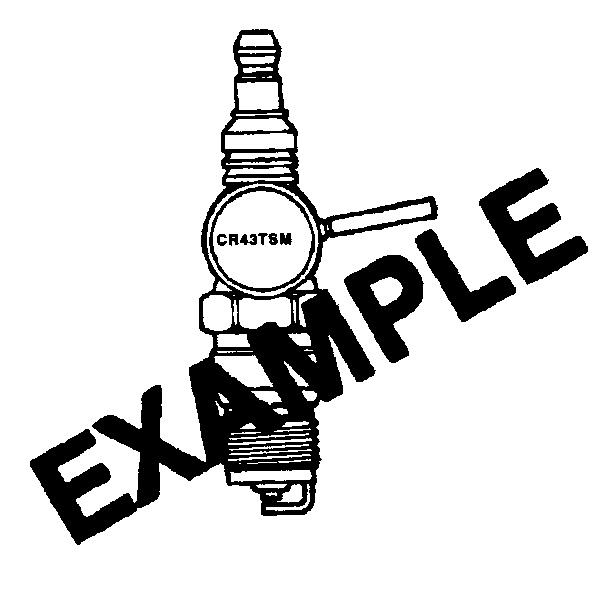The resistor-type, tapered-seat spark plugs are used. No gasket is used on these plugs. These spark plugs are a High Efficiency (HE) spark plug that has a fine wire electrode, nickel plated shell and a platinum pad across from the electrode. These features give the HE spark plug long life and durability.

If the spark plug shell hex is not fully engaged in the spark plug socket wrench, the socket may cock at an angle and cause insulator cracking and/or breakage during plug installation or removal.
Normal or average service is assumed to be a mixture of idling, low speed, and high speed operation with some of each making up the daily total driving. Occasional or intermittent high-speed operation with some of each making up the daily total driving. Occasional or intermittent high-speed driving is essential to good spark plug performance. It provides increased and sustained combustion heat that burns away any excess deposits of carbon or oxide that may have accumulated from the frequent idling or continual stop-and-go or slow-speed driving. Spark plugs are protected by an insulating boot made of special heat-resistant material that covers the spark plug terminal and extends downward over a portion of the plug insulator. These boots prevent flash-over with resultant missing of the engine, even though a film is allowed to accumulate on the exposed portion of the plug porcelains.
Do not mistake corona discharge for flash-over or a shorted insulator. Corona discharge is a steady blue light appearing around the insulator, just above the shell crimp. It is the visible evidence of a high-tension field, and has no effect on the ignition performance. Usually it can be detected only in darkness. This discharge may repel dust particles, leaving a clear ring on the insulator just above the shell. This ring is sometimes mistakenly regarded as evidence that combustion gases have blown out between the shell and the insulator.
